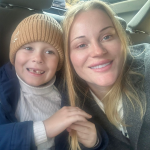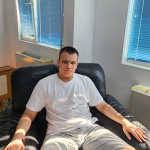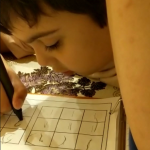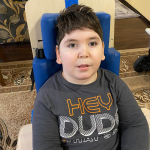How to Help an Autistic Child Make Friends?
Children with autism spectrum disorders (ASD) often struggle with communication and forming close relationships. However, just like anyone else, they need friendships and can feel discouraged or upset when their attempts to connect with others fail.
These efforts can sometimes be frustrating, confusing, and even frightening for autistic individuals. Their difficulties with social interactions may become more pronounced during adolescence, leading them to withdraw into their own world instead of trying to build friendships.
Nevertheless, helping autistic children develop friendships is crucial, as having friends is beneficial for all children. While autistic individuals may not intuitively pick up on social skills as easily as others, it doesn’t mean they can’t learn.
The Importance of Friendship
This might seem obvious, but at a certain age, children need to be explicitly taught what friendship is, why it matters, and how it works. Using clear and simple explanations can make it easier for autistic children to understand these concepts.
Developing Social Skills
Building and maintaining friendships requires various social skills. The first step is identifying what specific skills a child may be lacking. For example, they need to learn when to compromise, how to start a conversation, and how to take turns in discussions. Practicing these interactions together can help them feel more confident.
Shared Interests
Having common interests plays a key role in forming friendships. It’s difficult to genuinely connect with someone when there’s nothing in common. If a child enjoys art, enrolling them in an art class can help them meet like-minded peers. If they have a passion for science, finding a group or club with similar interests can be beneficial. Interacting with peers their own age is particularly important, as social behaviors vary by age group.
Practicing Communication
Autistic children often need more time and repetition to master new social skills. Practicing interactions with them in a structured way can help them feel more comfortable in real-life situations. They should also be encouraged to socialize with neighbors of their age and classmates outside of school hours.
Understanding Body Language and Emotions
Many autistic individuals struggle with interpreting body language and emotions. However, they often have strong visual learning skills. Creating flashcards with images of different facial expressions and body postures can help them understand nonverbal communication. By using these tools, they can learn to recognize when someone is happy, sad, angry, or frustrated.
Encouragement and Positive Reinforcement
It is essential to praise and acknowledge a child’s efforts in social interactions. Positive reinforcement helps build confidence and encourages them to keep practicing social skills. Learning should be made as engaging and accessible as possible, ideally through play-based methods.
A More Effective Solution: Cellular Therapy
Social skill development can be challenging for any child. To help autistic individuals navigate these challenges, addressing the underlying cause—autism itself—can be beneficial. Cellular therapy offers a modern, safe, and highly effective way to not only manage symptoms but also address the root of the disorder.
This therapy involves the transplantation of stem cells, which have the unique ability to transform into other types of cells and replace damaged ones. As a result, damaged brain cells are replaced with healthy ones, leading to behavioral improvements and accelerated development in all areas. The effects of the procedure become noticeable shortly after treatment and often last a lifetime. This, in turn, enhances the effectiveness of other therapeutic interventions.
Cellular therapy is already recognized as a promising approach to treating autism, and in the future, it may become the primary method for addressing the disorder. Leading medical centers worldwide practice this therapy, with the Mardaleishvili Medical Center being one of the pioneers in the field. Its team of highly qualified doctors is involved in scientific research and has extensive successful experience with this cutting-edge therapy, which requires state-of-the-art equipment.
For parents, another key advantage is that treatment at the center is more affordable compared to other countries with similar high medical standards. Additionally, comprehensive support is provided, including assistance with travel planning, accommodation arrangements, and other logistical matters.
Fill out the contact form—help your child find friends with ease!
Autism Treatment Center Videos
Autism treatment with own stem cells
Cord blood association congress
International Quality Crown
Autism Treatment Reviews
Autism treatment with own stem cells
The story of Alessandro (6 years old)
Autism Patient Testimonial - Stem Cell Treatment
Clients Testimonials

Feedback from Igor, David’s father (12 years old) Read More

Feedback from Olga, Fedya’s mother Read More

Feedback from Natalia, Radomir’s mother (15 years old) Read More

Feedback from Esther, Samuel’s mother (8 years old) Read More

Feedback from Abibe, Selim’s mother (7 years old) Read More












